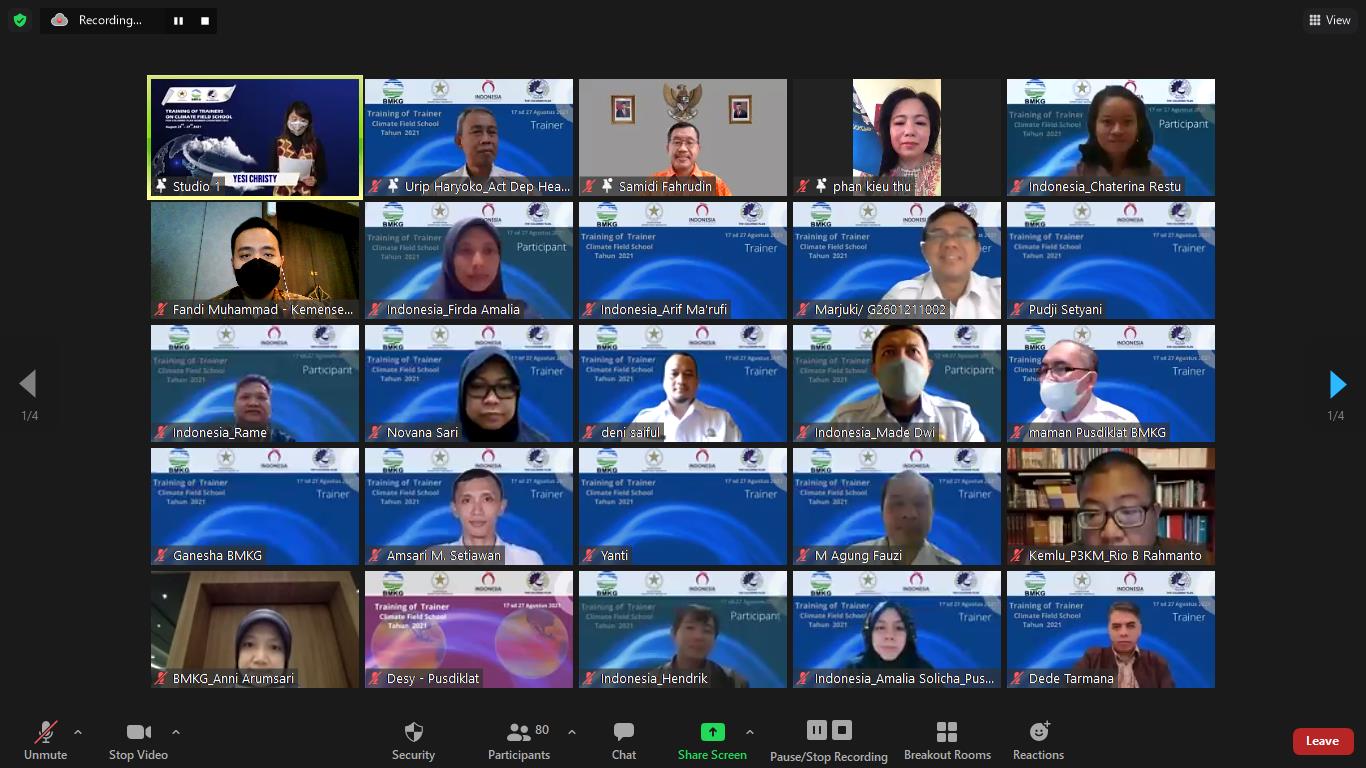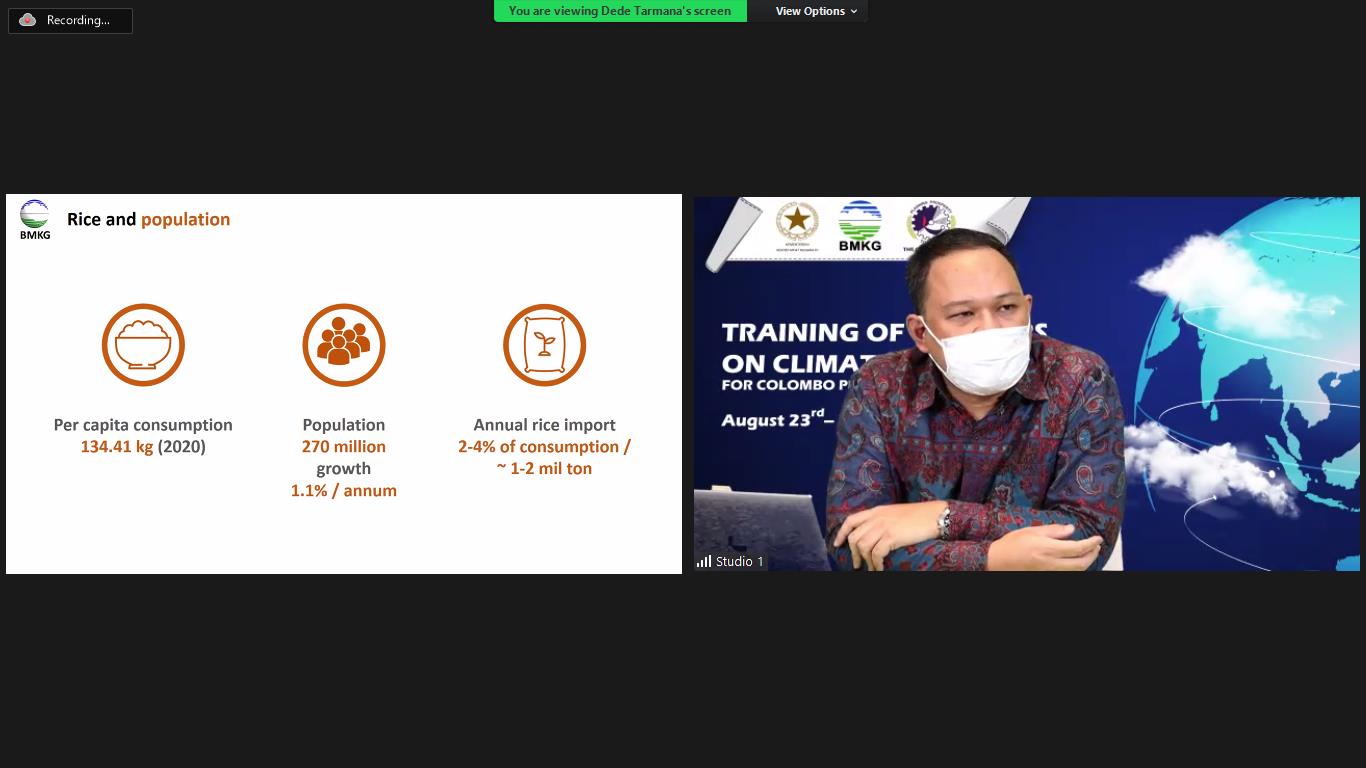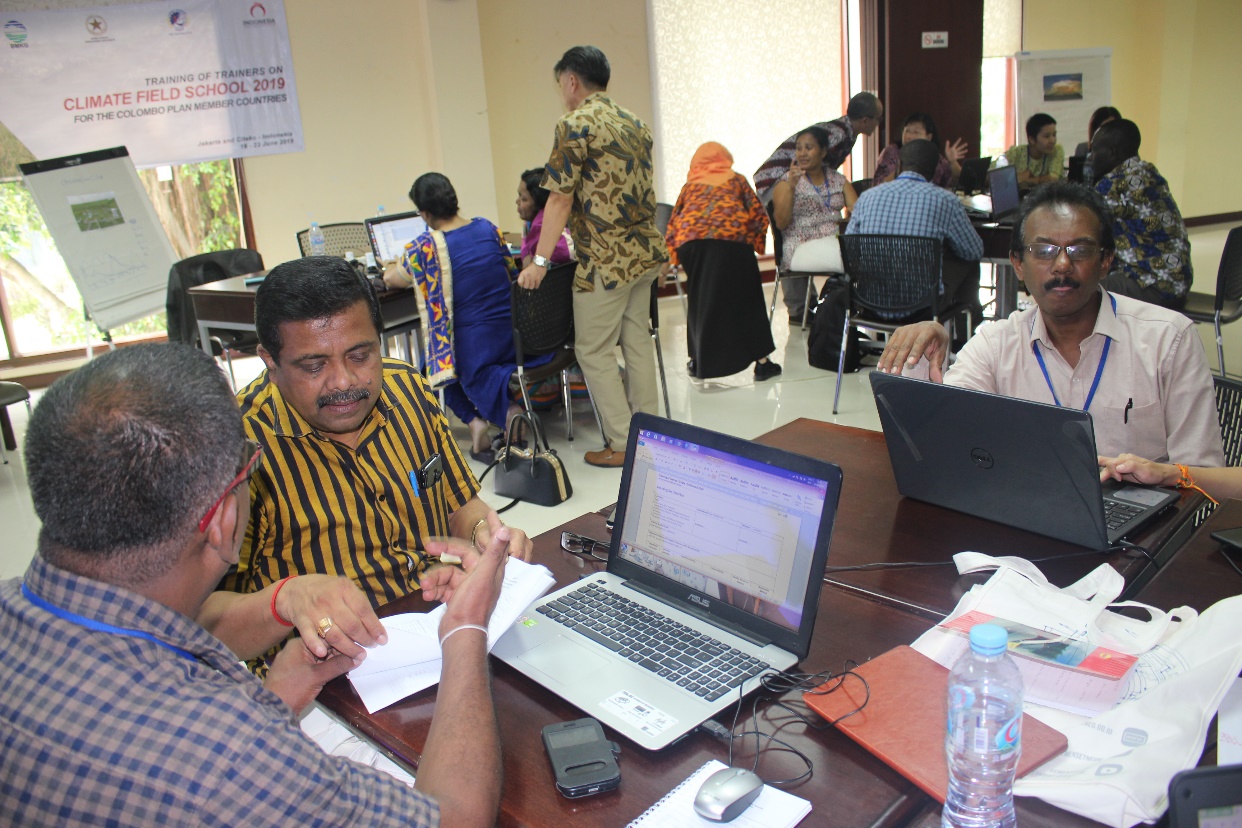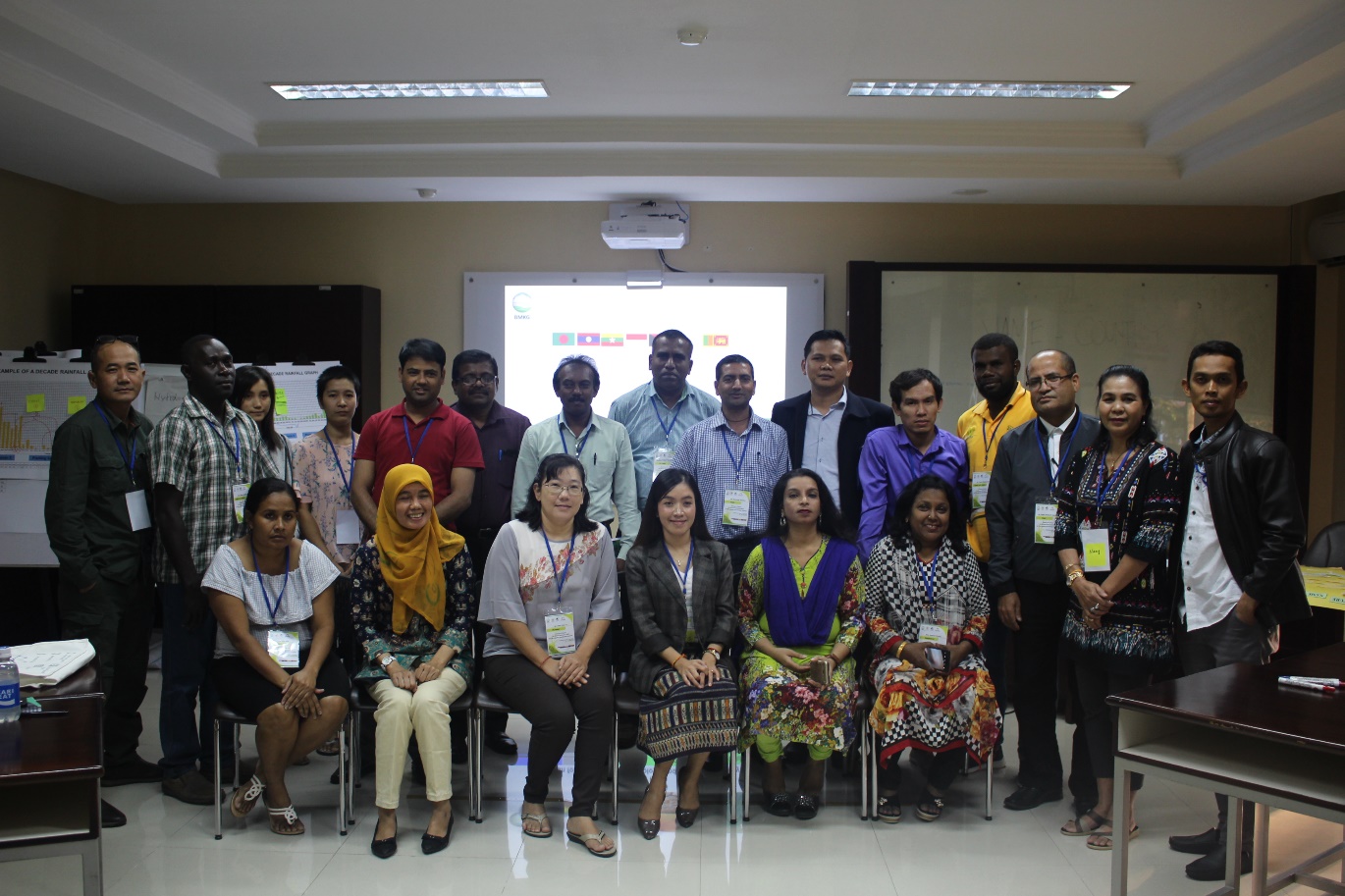 Training of Trainers on Climate Field Schools
Helping farmers in the Asia-Pacific region adapt to climate change
Training of Trainers on Climate Field Schools
Helping farmers in the Asia-Pacific region adapt to climate change

Challenges
Climate change has made climate conditions around the world more extreme and highly unpredictable. For farmers, especially those in the global South who are heavily impacted by climate change, the inability to predict weather conditions can lead to crop loss and poor productivity. Farmers need to know how to adapt to climate variability so they can sustain their crops and livelihoods.
The challenge is how to translate technical climate terms and adaptability models into accessible language and training that farmers can understand and implement. Strong partnerships are needed among countries with similar issues to support farmers in this shifting situation in order to support the achievement of sustainable development.
Towards a Solution
Indonesia and the Colombo Plan have established strong partnerships to address development challenges faced by Colombo Plan member countries through South-South and Triangular cooperation (SSTC). The partners work together to resolve issues related to climate change and address women’s empowerment and family planning.
In the field of climate change, Indonesia has been conducting a Training of Trainers on Climate Field School programme. The programme is managed by Indonesia’s Meteorology, Climatology and Geophysical Agency (BMKG) in close collaboration with extension workers of the Ministry of Agriculture and farmers. The programme strives to bridge the gap between the technical nature of climatology and farmers’ ability to use climate information to improve and protect crop production. Through Training of Trainers, agricultural sector professionals from countries around the region gain the skills needed to help farmers in their home countries interpret climate information and apply the information in everyday use.
To date, 58 participants from nine countries (Bangladesh, Indonesia, Lao PDR, Myanmar, Nepal, Papua New Guinea, Sri Lanka, Philippines and Viet Nam) have taken the course. The training has been conducted twice, in 2019 and 2021, and more training is planned for the future. Through this collaboration, Indonesia supports the achievement of SDG 2 (zero hunger) and SDG 17 (partnership for development goals).
The training involves in-class sessions, during which resource persons deliver lectures on various topics related to climate and agriculture. Participants also have the opportunity to observe and use the tools to measure climate and weather and learn how to use that information for crop production. At the end of the programme, participants create an action plan for addressing climate and agriculture issues in their countries. Through implementation of the action plans, the knowledge learned is transferred to farmers in countries across the region, ensuring the sustainability of the programme.
Due to the COVID-19 pandemic and with tight restrictions on international travel to Indonesia, the 2021 course was conducted online. Despite the suspension of the hands-on training portion of the course, participants were still enthusiastic. The hands-on experience was replaced with active learning for participants. Nevertheless, implementing the programme offline is more effective as participants are more engaged and able to practice what they learn during their training in Indonesia.
To assess the effectiveness of the programme, participants provide feedback and suggestions for improvements in the future. Communications are maintained with programme alumni to follow up on the progress of their action plan implementation and to measure the impact of the programme in beneficiary countries. The programme has been successful in improving the capacity of farmers, particularly on three indicators, namely: (i) the ability to disseminate to other farmers; (ii) the ability to access weather information; and (iii) the ability to apply their knowledge in managing rice fields. Under each indicator, farmers have become able to conduct various activities, such as disseminating their knowledge through personal or group discussions, accessing weather information via android smartphones and applying newly learned farming techniques for better crop production.
This programme highlights the importance of upgrading the skills and knowledge of agricultural trainers and extension workers so that they can disseminate valuable climate information and agricultural techniques to farmers, helping the latter adapt to climate change.
Contact Information
Countries involved
Supported by
Implementing Entities
Project Status
Project Period
URL of the practice
Primary SDG
Primary SDG Targets
Secondary SDGs
Secondary SDG Targets
Similar Solutions
| NAME OF SOLUTION | Countries | SDG | Project Status | |
|---|---|---|---|---|
360-Degree Awareness Tool to Fight COVID-19 Raising awareness and ensuring public wellbeing through a one-stop platform for fighting COVID-19 in Bangladesh |
Bangladesh, Indonesia, Lao People’s Democratic Republic, Myanmar, Nepal, Papua New Guinea, Philippines, Sri Lanka, Viet Nam | 16 - Peace and Justice Strong Institutions | Ongoing | View Details |
A Billion Brains: Smarter Children, Healthier Economies High Level Meeting on South-South Cooperation for Child Rights |
Bangladesh, Indonesia, Lao People’s Democratic Republic, Myanmar, Nepal, Papua New Guinea, Philippines, Sri Lanka, Viet Nam | 17 - Partnerships for the Goals | Completed | View Details |
A-Card Initiative |
Bangladesh, Indonesia, Lao People’s Democratic Republic, Myanmar, Nepal, Papua New Guinea, Philippines, Sri Lanka, Viet Nam | 10 - Reduced Inequalities | Completed | View Details |
Accelerating Digital Transformation in All Ministries in Bangladesh Promoting the rapid design and implementation of plans to digitize all ministries and subordinate government institutions in Bangladesh |
Bangladesh, Indonesia, Lao People’s Democratic Republic, Myanmar, Nepal, Papua New Guinea, Philippines, Sri Lanka, Viet Nam | 10 - Reduced Inequalities | Ongoing | View Details |
Accelerator Labs Network Following collective intelligence methods to address emerging sustainability challenges and the growing demand for local solutions |
Bangladesh, Indonesia, Lao People’s Democratic Republic, Myanmar, Nepal, Papua New Guinea, Philippines, Sri Lanka, Viet Nam | 08 - Decent Work and Economic Growth 13 - Climate Action | Ongoing | View Details |



